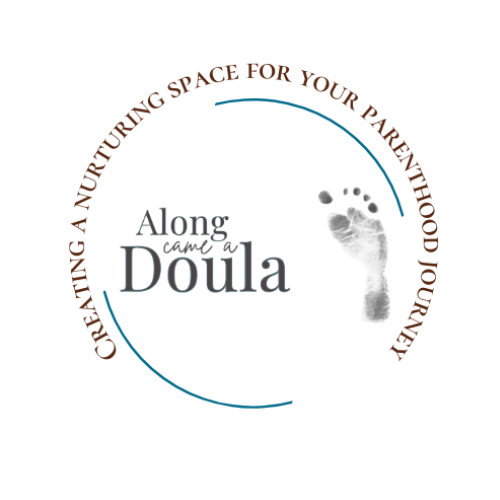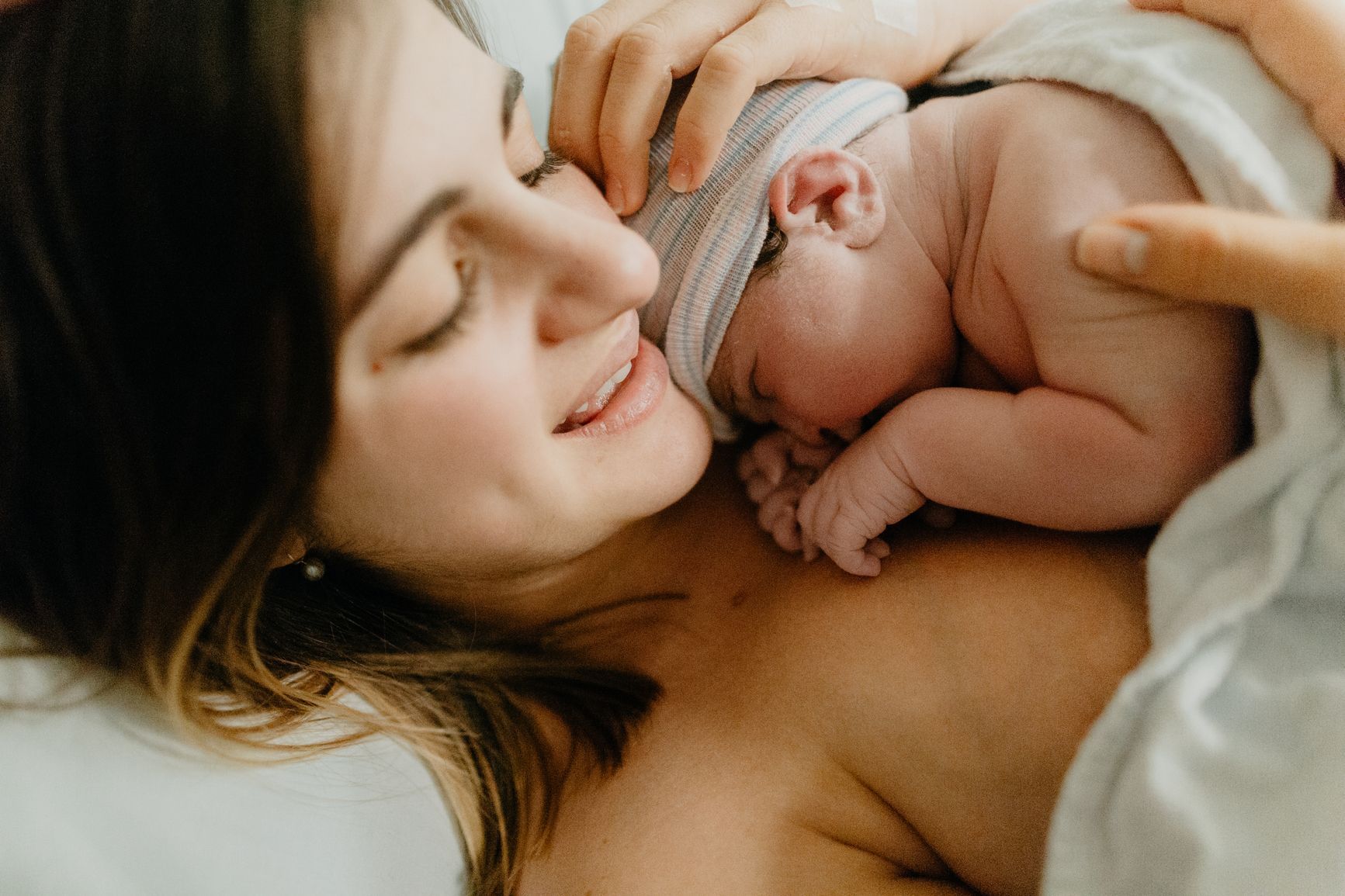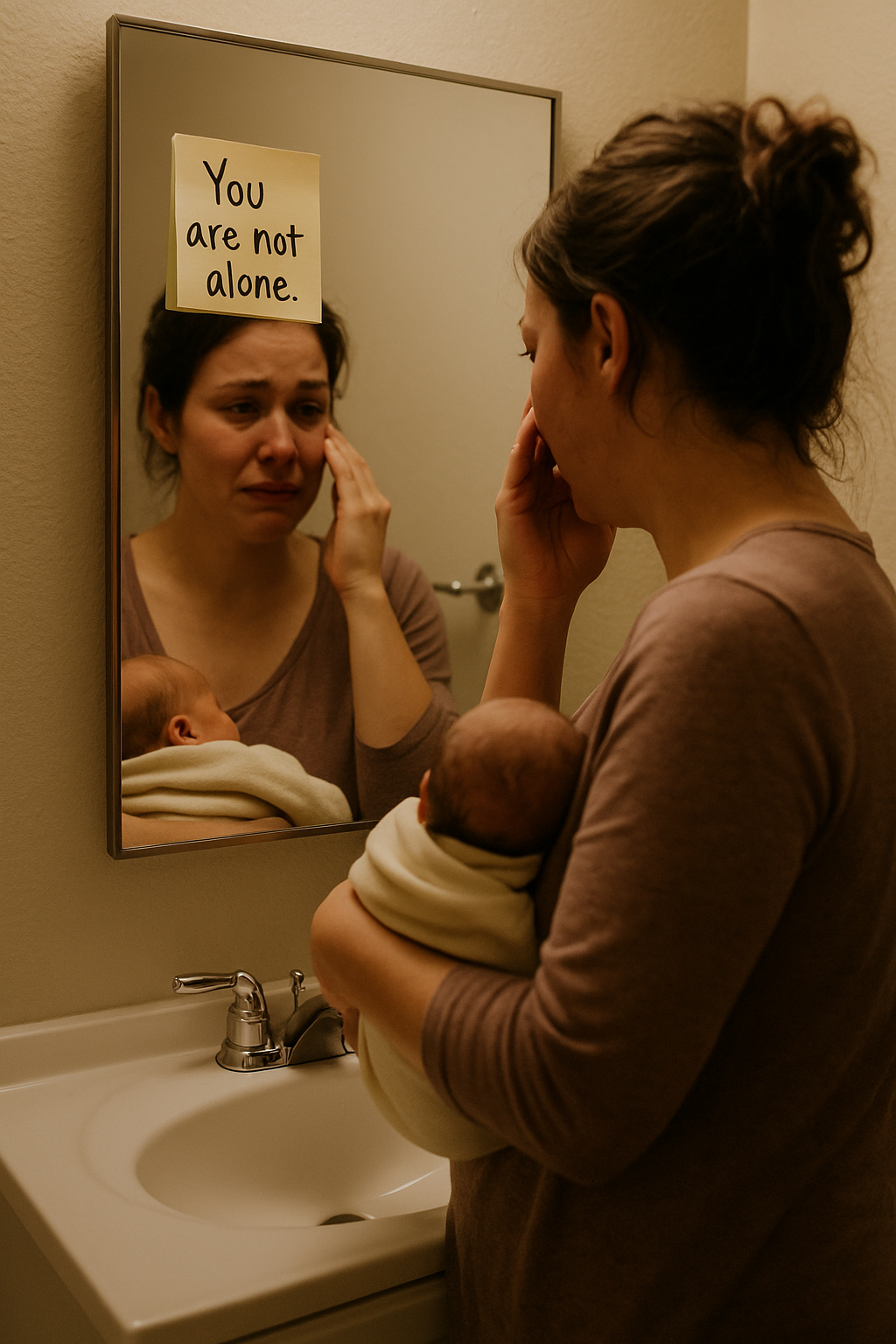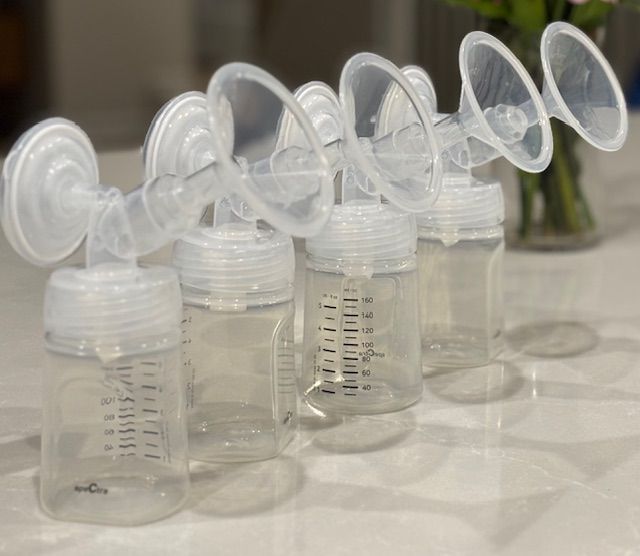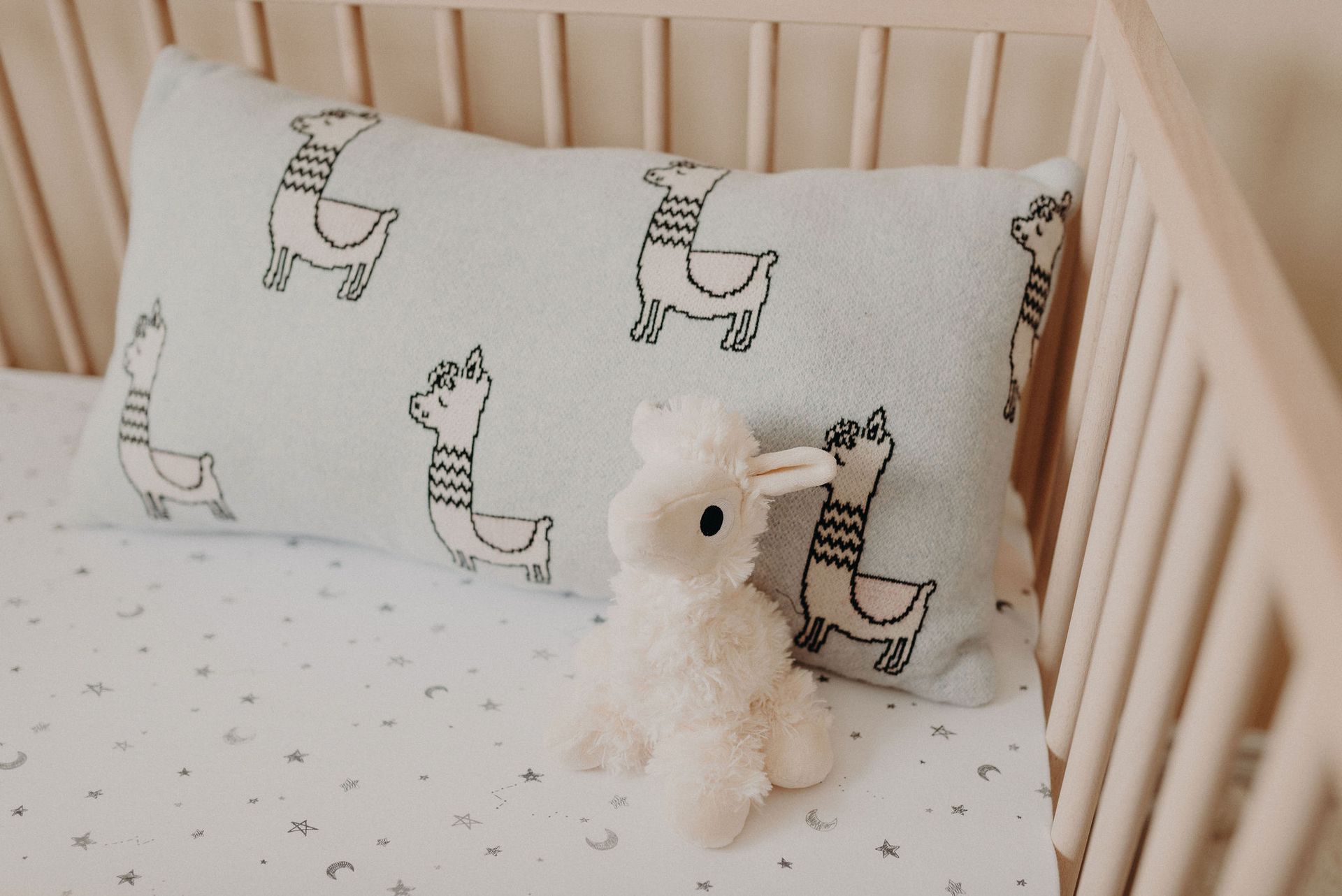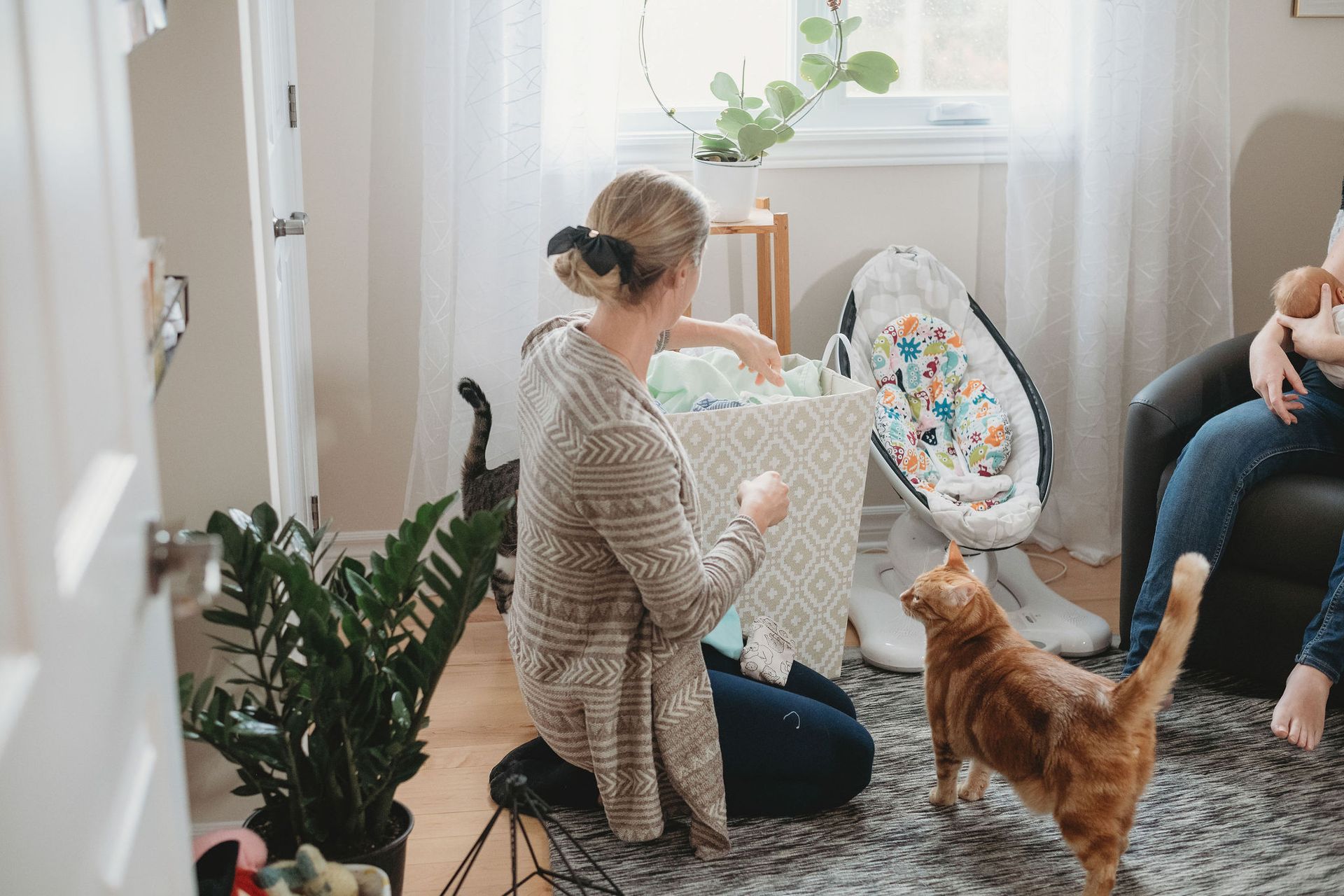Welcoming a new baby brings moments you will never forget.
Feeding. Changing. Rocking them in the quiet hours. Learning their sounds and rhythms.
And then there is you.
Too often, postpartum support gets reduced to tasks.
Diapers. Bottles. Sleep schedules.
Helpful, yes. But incomplete.
Because the postpartum period is not just about keeping a baby alive.
It is about supporting the person who gave birth and the family learning how to live inside this new reality.
Your needs matter.
Your emotions matter.
And having someone who can sit with you in the hard moments and remind you that you are not alone can change everything.
Postpartum Support Is Not Just About the Baby
I hear these questions all the time.
“Do you just hold the baby so parents can sleep?”
“Are postpartum doulas like night nannies?”
“Is it mostly diaper changes and feedings?”
Yes, postpartum doulas support baby care.
And also, that is only part of the work.
Postpartum doulas are there for you.
We are there when the house is quiet but your mind will not slow down.
We are there when you feel overwhelmed and cannot explain why.
We are there after the visitors stop coming and real life settles in.
Baby care matters. But emotional care is what holds everything together.
Why Emotional Health Matters After Birth
You gave birth.
That alone is significant.
Your body is healing.
Your hormones are shifting rapidly.
Your sleep is fragmented.
Your identity may feel tender or unfamiliar.
Some days you may cry without knowing the reason.
Other days you may feel numb or disconnected.
All of this can be part of a normal postpartum experience.
Normal does not mean easy.
Common does not mean you should handle it alone.
Emotional support helps regulate your nervous system, ground your thoughts, and remind you that what you are experiencing makes sense.
What Emotional Wellness Can Look Like Postpartum
There is no single version of emotional wellness after birth. It often looks quiet and unpolished.
It can look like:
- Feeling safe enough to cry without explaining yourself
- Being heard without someone rushing to fix you
- Having space to process big emotions without judgment
- Someone asking, “How are you really doing?” and waiting for the answer
Emotional wellness does not mean being happy all the time. It means being supported while you move through the full range of emotions that postpartum brings.
What “Holding Space” Really Means
The phrase holding space gets used often. In postpartum care, it has a very real meaning.
Holding space means being present without trying to change your experience.
It means sitting with you while you cry and not telling you to look on the bright side.
It means noticing when you go quiet and gently checking in.
It means making you a cup of tea and staying nearby while you feed your baby again.
Sometimes it looks like conversation.
Sometimes it looks like silence.
Both are care.
Validation Changes Everything
Well-meaning comments can unintentionally isolate new parents.
“At least the baby is healthy.”
“You should be enjoying this.”
“Other people have it worse.”
A postpartum doula responds differently.
“That sounds really hard.”
“You are allowed to feel this way.”
“You do not have to be okay right now.”
Validation does not fix everything. But it helps you feel seen. And feeling seen reduces shame, self-doubt, and isolation.
Common Emotional Challenges After Birth
Baby Blues
Many new parents experience mood swings, anxiety, or tearfulness in the first couple of weeks.
This period can feel intense and confusing, even when expected.
Support during this time can soften the experience and help you feel less alone.
Identity Shifts
Becoming a parent can shake your sense of self.
Questions come up quietly and persistently.
Who am I now?
Am I doing this right?
Will I ever feel like myself again?
These questions are normal. You do not need to carry them by yourself.
Isolation
Even with people around, postpartum can feel deeply lonely.
Especially in the middle of the night, when the world feels asleep and you are wide awake.
A postpartum doula offers steady presence when the hours feel long.
How Emotional Support Shows Up in Real Life
Emotional support is not always about deep conversations.
Often, it shows up in small, grounding moments.
- Sitting next to you during a hard cry without saying much
- Holding your baby so you can shower and return to a calm space
- Listening fully without interrupting or advising unless asked
- Gently reminding you that you are not failing
- Checking in on
you, not just the baby
These moments create emotional safety. Emotional safety supports healing.
Emotional Support Is Not a Luxury
There is a belief that emotional support is optional. Something you only seek if things get bad enough.
That belief leaves many parents suffering quietly.
You just experienced a major physical and emotional transition.
You are learning to care for a newborn around the clock while your body heals and your hormones recalibrate.
Support during this time is not indulgent. It is basic care.
Support is not about fixing you. It is about seeing you.
## When Emotional Support Is Missing
Without emotional support, many parents slip into survival mode.
You may bottle things up until they spill over.
You may doubt yourself constantly.
You may feel invisible while everyone focuses on the baby.
You may tell yourself you should be handling this better.
None of that means you are failing. It means you are carrying too much without enough care.
Emotional Support Creates Breathing Room
Imagine someone coming into your space and asking, “How are you really doing?”
No checklist. No judgment. No pressure.
Just presence.
That breathing room matters.
It allows your nervous system to settle. It allows clarity to return.
It allows you to feel human again.
Emotional Care Is Part of Postpartum Recovery
We plan for diapers and bassinets.
We stock the fridge.
We prepare the nursery.
But who is supporting the emotional recovery?
Who is helping you process what your body just went through?
Who is sitting with you when the nights feel heavy?
Who is reminding you that you do not have to do this alone?
Emotional care supports the parts of recovery that supplies cannot touch.
Support Can Be In-Person or Virtual
Not everyone has access to in-person care, and that does not mean you have to go without support.
Virtual postpartum doula support can offer:
- Emotional check-ins and real-time conversations
- Space to process what you are feeling
- Guidance around newborn care and feeding
- Reassurance from someone who understands postpartum life
Connection still matters, even from a distance.
